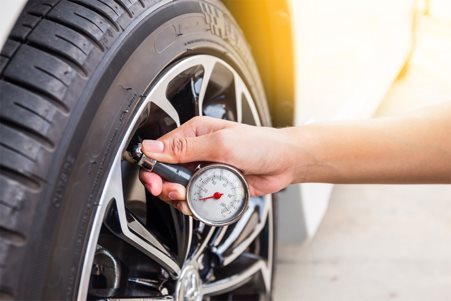
Top stories






More news


















The lockdown has taken its toll on the economy and forced many people to tighten their belts and apply for financial help. The South African Tyre Manufacturing Conference (SATMC), therefore, recommends drivers conduct these five checks to prevent costly expenses due to stationary motor vehicles.
“Your vehicle is made to move; if it has remained parked in one spot for the majority of lockdown, you need to conduct these checks before using it again,” says Darren Hayes-Powell, chairman of the SATMC.
Here are SATMC’s five recommended checks that you can do now to save you money and return to the road safely:
A vehicle left stationary for extended periods has its full weight exerting force on its tyres. This can cause tyre damage in the form of flat spots.
“It’s quite easy to identify a flat spot. Look out for visible flattening of the tyre, ‘bald’ patches of little to no tread and take note of any vibration experienced just after setting off,” says Hayes-Powell.
Any flat spots will usually disappear after around 40 kilometres of driving under normal conditions. For an easier alternative, move the vehicle backwards and forwards every few days to redistribute the weight on the tyres.
It’s not just driving, but the passage of time that makes air escape from tyres. Incorrect inflation affects steering, acceleration, braking and road grip. Under-inflation can lead to tyre blow-outs, and over-inflation reduces traction.
All new South African passenger vehicle tyres have been fitted with tread wear indicators (TWI). The TWI is a small rubber insert set at 1.6mm in the grooves of your tyre. Turn your steering to the far right and compare the tread on your front tyres to the TWI; be sure to do a close inspection of the back tyres too. The tread needs to be above the TWI to be legal.
Remember to check the TWI across the entire width of the tyre, as the outer tread may be deeper than the inner. Any uneven tread wear could indicate poor wheel alignment, which should be addressed by a professional. To avoid hefty fines from the traffic police, check your tyres’ TWI once a month. Tread depth plays an essential role in vehicle control and braking distances.
“It’s also a good idea to check your spare wheel’s tread and pressure while you’re at it,” says Hayes-Powell. “Tyre dealerships have been open since Level 4 and can assist with tyre emergencies such as an exposed tyre structure, a tread depth equal to or less than the TWI, a cut in tyre fabric or any visible lumps or bulges,” he adds.
Your oil, brake fluid, coolant and fuel all need attention after long periods of stagnation. Leaving old oil sitting in the engine can cause damage, you may need to schedule an oil change if needed and replace your oil filter. When you first start your car, let your engine idle to charge the battery. It will also allow the oil and other fluids to circulate through the engine.
Remember that moisture could have accumulated in your fuel tank if it was not full. This could lead to oxidisation and corrosion, and possibly rust. If you suspect any corrosion has occurred, take your car to your nearest dealership before further damage is caused.
Remember to check your number plate validity, as well as your vehicle licence disc and driver’s licence expiry dates. Don’t incur unnecessary expenses by having to pay traffic fines. Our government has allowed a three month grace period to renew licences if they expired during the lockdown.
“Keep your vehicle in tip-top shape; drive safely and continue to have your vehicle well maintained and roadworthy. If every driver does these simple checks, large investments to fix what would have been a smaller problem can be avoided,” concludes Hayes-Powell.